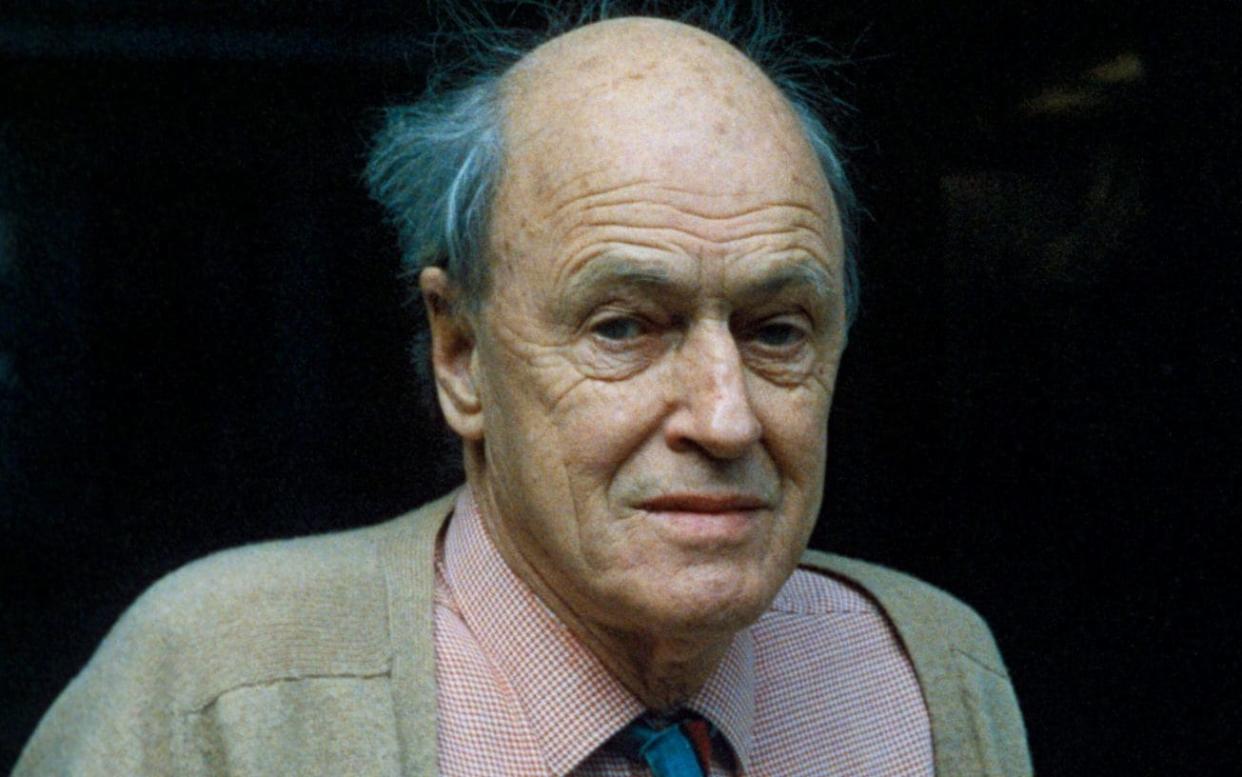The race is on to buy Roald Dahl’s original books

There is an Oxfam in Belfast where, nestled between the paws of a large Winnie the Pooh, you can find an “uncensored” copy of Roald Dahl’s Matilda. In the wake of controversial edits to Dahl’s work, a notice has been attached to the front cover to show customers that this edition is “as it was meant to be”. It could turn out to be an astute business move.
As revealed by The Telegraph last week, sensitivity readers have made hundreds of changes to Dahl’s books. This might be bad news for young readers – subsisting on a diet of watered-down versions of The Twits and Esio Trot – but is proving a boon for secondhand book sellers. One reports that sales are up sixfold, while another has received orders for rare editions worth hundreds of pounds. On eBay, a six volume Folio society set of Roald Dahl books is listed for £250.
Several bookshops say shoppers are hunting for secondhand copies of Roald Dahl, before the Oompa-Loompas went gender neutral and any references to “fat” or “mad” characters were purged. The versions that avoided being fed through the sensitivity mangle have, appropriately, become golden ticket items.
One customer at Fara Books for Kids in Clapham, south London, went searching for Roald Dahl books after being “upset” at the edits made by Puffin Books. “She was complaining to me, and she wanted to have the original ones and not the new ones,” says a volunteer called Giada.
The woman bought “almost all of them”: 13 books in total, although she was unable to find a copy of Charlie and the Chocolate Factory. “I have some Dahl books left in stock, thank God,” adds Giada. “We have a lot of Roald Dahl so I cannot complain.”
The story of Charlie Bucket, a poverty-stricken 11-year-old who ends up inheriting a chocolate factory, might be the best-known of Dahl’s books. This has not stopped the new edition being scrubbed of anything remotely controversial: even Quentin Blake’s illustrations of Mike Teavee decked out in toy pistols are apparently too much for modern readers. Yet those same readers are now trying to track down older editions.
“People were asking about Roald Dahl yesterday because of the discussion in the press,” says a sales assistant at Hurlingham Books in west London. “But we didn’t have Charlie and the Chocolate Factory. We’re a secondhand bookshop, so we only had one copy and we’d already sold it.”
Staff at Baggins Book Bazaar in Rochester, Kent, are hopeful of a windfall after the furore. According to one worker: “I said to my husband last night, I bet [Dahl’s] stuff goes through the roof now – now that he’s been censored.”
Others are combing through online booksellers in search of secondhand copies. One platform, Music Magpie, has seen sales of Roald Dahl increase by 525 per cent since Saturday. Its best-selling books were The Twits – Mrs Twit is no longer “ugly” in the sensitivity rewrite – and, of course, Charlie and the Chocolate Factory.
The rise in demand has been even more extreme at Wob, an online seller with a reported catalogue of two million. It has seen a 600 per cent surge in sales of Roald Dahl compared to the week before, while the author accounts for eight of the 10 top-selling children’s books since Saturday. Not bad for someone who died more than three decades ago.

“Sales in Roald Dahl books have risen exponentially over the last week and Wob is not expecting to see this surge slow any time soon,” says Rebecca Alford, the company’s head of brand. “While some parents will like the idea that their children will be reading by today’s standards, others will be sad that some of the magic from their childhood could be lost.
“It’s no surprise that there has been a significant uptick in Roald Dahl sales over the last week but even we didn’t anticipate the six-fold increase that we’ve seen. It would seem that classic Dahl books may even become a bit of a collectors item.”
Pom Harrington, a rare book dealer, believes the controversy is responsible for his recent sales of early Roald Dahl books, including a copy of The Twits, for a couple of hundred pounds.
“We sold a few this weekend – I presume on the back of the publicity,” Harrington, a Dahl enthusiast who collects signed first editions, says. “I find it quite interesting, the cancellation of it. Does it make it more interesting, more collectible? It probably does. It gets a bit more cult status. But personally I think it’s a bit of a shame.”
Ironically, the attempts to sanitise and cancel Dahl seem only to have cemented him as a cult figure. Like Charlie Bucket’s Grandpa Joe, who suddenly leaps out of bed after 20 years, these older editions have been given a new lease of life. Today’s works might be more “sensitive”, but can they inspire the same affection?


